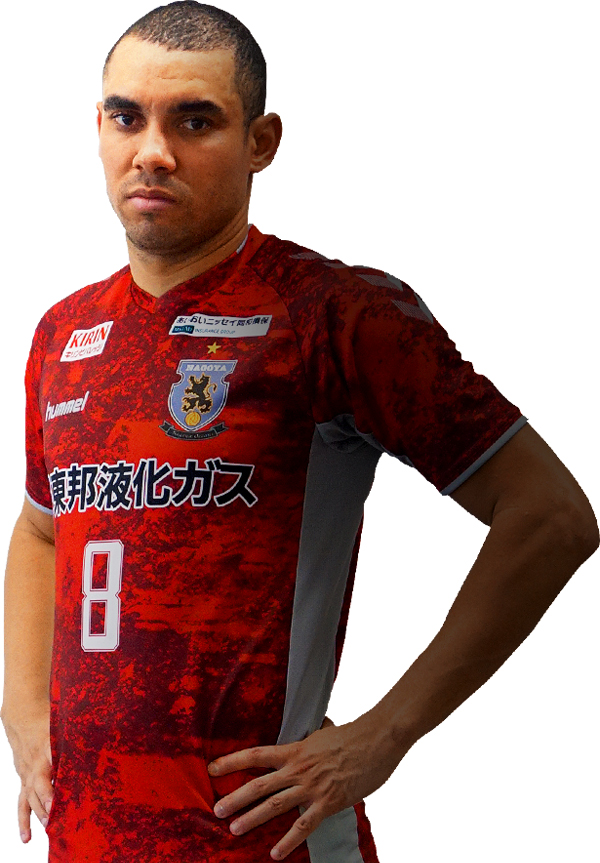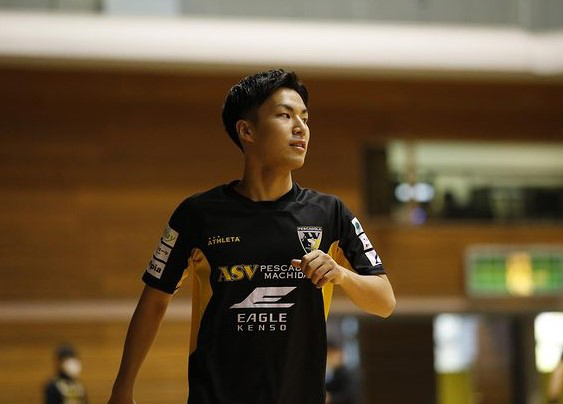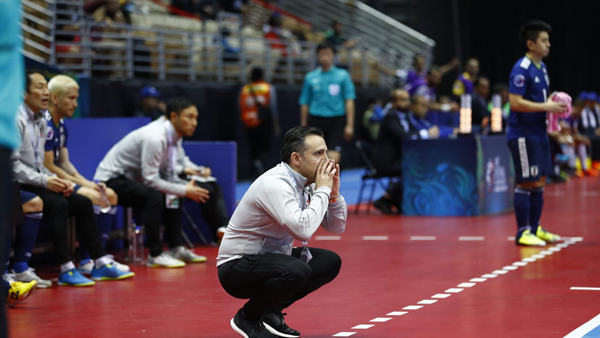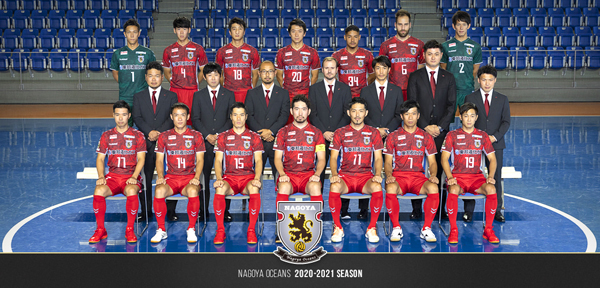 Japan - March 18, 2021 21:00Japanese Futsal in the Time of CovidSteve Harris' overview on the Asian powerhouseText by Steve Harris - Futsal Japan
Japan - March 18, 2021 21:00Japanese Futsal in the Time of CovidSteve Harris' overview on the Asian powerhouseText by Steve Harris - Futsal Japan
Bittersweet Success for Nagoya
Nagoya Oceans comfortably won the ’20-21 F.League, the team’s 13th title in 14 seasons. Arthur de Oliveira became the first ever F.Leaguer to hoist high the trophy in two different uniforms – he claimed his first trophy with Shriker Osaka in the ‘16-17 season – while also gaining Japanese citizenship. PC Oliveira (2008 World Cup champion coach) might get to see his son play in samurai blue at Lithuania 2021. Though Nagoya was further strengthened by the addition of Arthur, Pepita – the star of the show – was unstoppable. The former Corinthians player very much deserved the F.League MVP Award he received, an accolade he probably should have received for Asia as well, as he also led Nagoya to the last AFC Club Championship title.
Despite continuing their domination of Japan and even winning a record fourth AFC Club Championship, Nagoya would receive some very bad news. The club lost the use of their home pitch Ocean Arena for practice sessions. No official reason was announced but some have speculated that the pharmaceutical manufacturer who owns the facility is no longer willing to sponsor Japan’s zettai ouja (“undisputed champion”) by offering the facility at a low price. The club has since entered into an agreement with a local university to regularly secure a training facility.
Pepita, the star of the show! (Photo courtesy: Nagoya Oceans)

Playoff Dreams Dashed by Covid and Club Licensing Problem
COVID-19 cast a long shadow over the F.League: the schedule was abbreviated to two round-robins (22 rounds instead of the usual 33) and playoffs were scrapped. More than a few matches were played behind closed doors, but even if teams were economically impacted there were almost no outward signs of distress. There have not been noticeably more retirements than normal as of the end of this season.
With F1 playoffs removed from the schedule, there had been high hopes for the pair of promotion/relegation matches to be held between undefeated F2 champion Kashiwa and F1 bottom finisher Nagano. In fact, these games were poised to become the encore to Kashiwa’s historical Cup title. The undefeated F2 champion blazed an undefeated trail to Cup glory, eliminating both Nagoya (F1 champion) and Oita (F2 league runner-up) in the process. But fate intervened: Kashiwa’s application for an F1 club license was rejected less than a week before the pro/rel playoffs. The league said the playoffs would still be played as a formality, but Kashiwa said “no thanks” and duly withdrew.
Enjoy the highlights of F2 champion Kashiwa’s victory over Sumida in the JFA Futsal Championship (Cup) final
Japan’s Futsal Garden Flourishes Amid the Pandemic
All 132 F.League matches were streamed live (and archived) by online content provider AbemaTV. The production values and quality of the commentary were stunning, a development that could not have been more timely to capture the F.League’s extremely entertaining style. Despite Nagoya’s stranglehold on the league, the other 11 teams proved in many ways that development can be achieved through a modest budget as long as there is hard work, creativity, and players and coaches who reinvent themselves year after year.
There is Oita, for example. Despite the Kyushu-based club finishing a relatively close 2nd place to Nagoya in ’19-20, almost half of the players were released at the end of last season. And yet, the new Oita achieved runner-up status again this year with both established names and younger players who stepped up under the continued tutelage of head coach Masanori Ito. There is also the example of Machida. In his first two seasons as Machida manager, Spaniard Lluis Bernat has been even more aggressive in rejuvenating the club by raiding its B and youth teams. The result was a 3rd-place finish for the team and Best Newcomer honor for pivot Gensuke Mori.
Gensuke Mori in action (Photo courtesy: Pescadola Machida)

Dark Times for National Team Programs
Though both the AFC Championship finals and World Cup were postponed, the Japan men’s national team was able to celebrate an easy first-place finish in the 2020 AFC Championship qualification round: a 17-2 win over Macau and surprisingly close 4-2 victory over South Korea. Unable to travel, the national team took to facing F.League clubs in friendlies during monthly training camps. After two sobering losses to Urayasu and Yokohama, the Samurai 5 found their form in wins over Tachikawa-Fuchu and then Sumida.
Covid sidelined both the women’s national team (who saw the AFC Women’s Championship cancelled and were again stung this year by the cancellation of the Asian Indoor and Martial Arts Games) and U-20s (whose AFC U-20 AFC Championship qualification round was postponed). The suspension of activity was somewhat offset by the summer opening of the spectacular Prince Takamado Memorial JFA YUME Field, a state-of-the-art national training facility that includes a full-size futsal pitch.
Watch the Japan national team training at the new JFA YUME Field facility
Next stop: Lithuania?
Japan national team coach Bruno Garcia is a man with a headache: he has an excellent squad of experienced veterans who can be called up at any time, but he also has a battalion of younger players who are ready to step in and redefine the identity of Japan. How can he possibly narrow his choice to 14 players? Though veterans such as Minamoto, Nishitani, Yoshikawa, Murota, Hoshi, and Sekiguchi are playing at their highest level ever, a generation spanning two AFC U-20 championships (’17, ’19) and two seasons of the developmental team F.Selection (an experimental two-year project that gave promising young players their own team in the F1 ’18-20) consists of aggressive young guns. The frontrunner of the younger generation is Kazuya Shimizu, but virtually all F.League clubs are benefiting from too many up-and-coming players to mention here. And Bruno has not even given a chance yet to Brazilian-born Vinicius Crepaldi, who now has Japanese citizenship as well as the unique distinction of having scored 300 goals in the F.League, an all-time record.
But the pandemic has halted virtually all international competition. Bruno has no way of knowing if his stalwarts are still fresh or if his promising newcomers can perform against countries they are not accustomed to playing. And since the AFC has decided against even holding the final qualification round for the 2021 World Cup, all we know is that some sort of rating mechanism will be used to determine the five berths reserved for Asian teams at Lithuania. At this point, we can only hope that the AFC awards Japan a ticket to the upcoming World Cup.
Bruno Garcia, head coach of Japan (Photo courtesy: AFC)

Nagoya Oceans 20/21, F-League "usual" winners (Photo courtesy: Nagoya Oceans)
